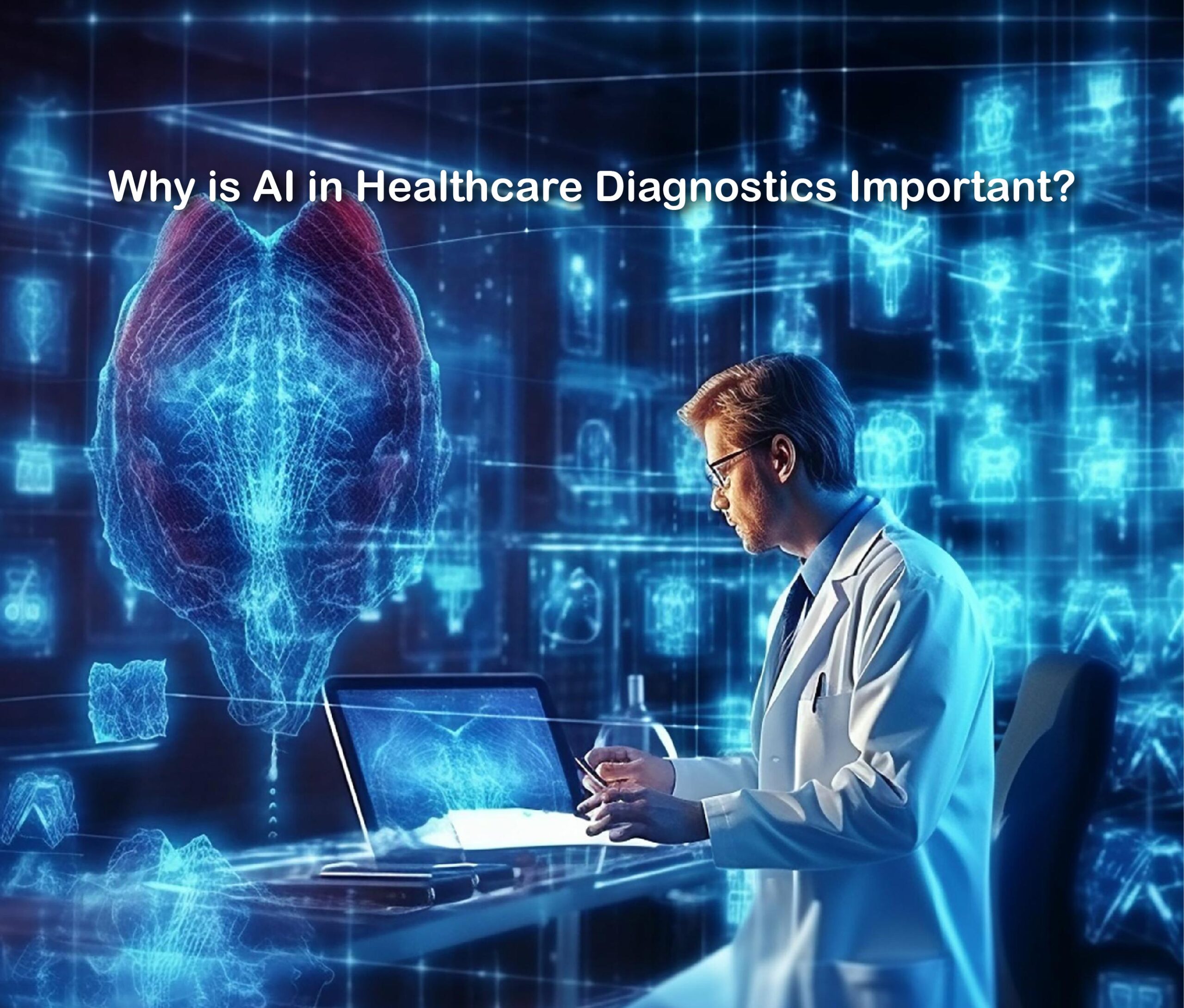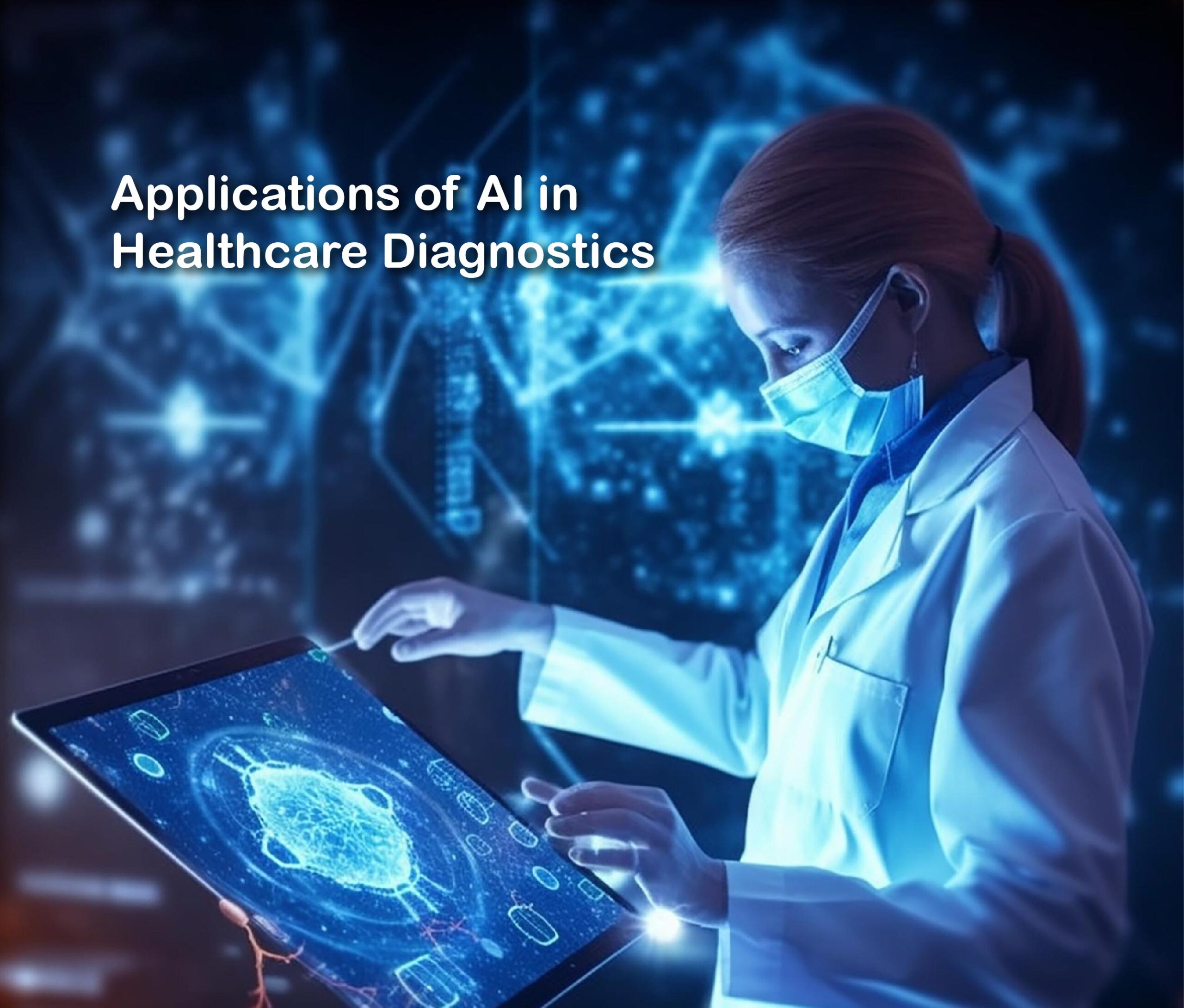Artificial intelligence (AI) has the potential to significantly assist healthcare professionals in obtaining valuable insights and enhancing health outcomes. While certain concerns surrounding its safety, regulation, and overall impact persist, AI in healthcare diagnostics has advanced beyond its early stages and is projected to witness substantial growth in the foreseeable future.
AI technology is advancing in its ability to process data and recognize patterns, providing valuable insights that may not be easily discoverable through the manual efforts of healthcare professionals. As per the recent Futurescan 2023 report, hospitals and health systems must establish the necessary infrastructure within the next five years to integrate AI technology effectively.
It’s imperative to first define AI in healthcare diagnostics, before delving into the intricacies of the concept. Let’s see, what exactly does “AI in healthcare” mean, and how is it poised to revolutionize the diagnostics landscape?
What is AI in Healthcare Diagnostics?
AI in healthcare diagnostics is the use of machine learning and AI algorithms to increase the precision, speed, and effectiveness of medical diagnosis. AI in healthcare diagnostics gives medical professionals insightful information and assistance in patient diagnosis and treatment. AI has great promise for revolutionizing the medical industry by processing large volumes of medical data and detecting patterns and relationships that could result in better patient outcomes and a more effective healthcare system.
Why is AI in Healthcare Diagnostics Important?
AI plays a crucial role in enhancing healthcare diagnostics by transforming the way medical diagnoses are conducted. Its ability to rapidly analyze extensive and intricate data sets enables early disease detection, individualized treatment strategies, and better patient outcomes. With its advanced algorithms, AI significantly improves the accuracy and efficiency of medical professionals in interpreting medical images, genetic information, and clinical data. Furthermore, it paves the way for targeted and personalized therapies, revolutionizing the field of healthcare.
The potential impact of this technology in healthcare is immense, as it offers the possibility of alleviating the strain on healthcare systems, optimizing resource distribution, and improving the overall effectiveness of healthcare services. As a result, the application of AI in healthcare diagnostics has the potential to trigger a revolution in healthcare practices. This can foster proactive and preventative approaches, ultimately leading to life-saving outcomes, improved patient care, and a decrease in the economic burdens associated with diseases.
Applications of AI in Healthcare Diagnostics
AI is being widely used in healthcare diagnostics, bringing about significant changes in the detection, diagnosis, and treatment of diseases. Let’s take a look at a few key applications.
● Medical Imaging
Radiology Interpretation: AI algorithms can examine medical images like X-rays, MRIs, CT scans, and mammograms. The main purpose is to aid radiologists in detecting abnormalities and improving the accuracy of diagnoses.
Pathology: AI is utilized to examine pathology slides, assisting pathologists in identifying cancerous cells or irregularities more quickly and accurately.
Hospitals carry out a staggering 3.6 billion imaging procedures every year, resulting in a vast volume of data. Surprisingly, a whopping 97% of this data remains untapped and unused. However, the implementation of machine learning techniques provides an opportunity for healthcare practitioners to effectively organize, catalog, and utilize this valuable information, thereby enhancing the accuracy of diagnostics.
● Disease Detection and Diagnosis
Early Detection: AI algorithms examine patient data, encompassing genetic data, medical records, and lifestyle factors, to detect patterns that signify the presence of early-stage illnesses, facilitating prompt intervention.
Diagnostic Assistance: AI aids healthcare practitioners by offering diagnostic insights derived from symptoms, patient records, and medical data, thereby enhancing precision and productivity.
● Predictive Analytics
AI algorithms examine extensive datasets to forecast the probability of particular health conditions or the progression of ailments. This process aids in the identification of patients at a higher risk and the implementation of preventative strategies.
● Drug Discovery and Development
AI expedites the process of drug discovery by examining biological information to recognize possible drug prospects, forecast their efficacy, and enhance treatment strategies.
AI is also beneficial in pairing individuals with appropriate clinical trials, taking into consideration their genetic profiles and medical backgrounds.
● Virtual Health Assistants
AI-driven chatbots and virtual assistants deliver tailored healthcare information, respond to inquiries, and provide support for the management of long-term illnesses, thereby encouraging patient involvement and knowledge acquisition.
Final Thoughts
The incorporation of AI in healthcare diagnostics marks a significant advancement in the pursuit of heightened accuracy, effectiveness, and tailored medical assistance. The implementation of AI encompasses various areas such as early identification of diseases, interpretation of medical imaging, drug exploration, and customized treatment strategies, signifying a profound transformation in the healthcare sector.
The ability of AI to uncover patterns in vast datasets, predict health events, and augment the decision-making capabilities of healthcare professionals underscores its pivotal role in shaping the future of medicine. Despite challenges like data security and the need for human-machine collaboration, AI in healthcare promises a future with quick and accurate diagnoses, personalized treatments, and a shift towards proactive healthcare rather than just reacting to problems.


